After hearing opinions of AI, ranging from the end of humanity to the Singularity, I decided to dive in a bit deeper. I’ve led projects that worked on using AI/machine learning to analyze video at work, I hadn’t used it on any serious personal effort before.
I’m not a software coder. In the early days of personal computing, I did know some Assembly, Basic, Fortran, and even Pascal. But I’ve never made software development a skill of mine.
I’ve worked in technology my entire life and am comfortable configuring and working the guts of software that I’m dealing with, but I’ve never written any real software. While I have managed petabytes of storage, large technical operations, and dealt with the nitty gritty of networking, writing C, javascript, or python are beyond me.
After hearing from much more savvy friends that AI tools do amazing stuff when helping to code software, I decided to give it a try.
Python Scripts
The first task was cleaning up a very old personal web site. The site goes back 20+ years. I wanted to move it to a new server and clean up a bunch of problems. First and foremost, most of the HTML code used http: instead of https: making all modern browsers unhappy. You’re probably thinking, “Well, that’s just a simple python script.” And you’re right, but I don’t code python.
I started with ChatGPT to get started.
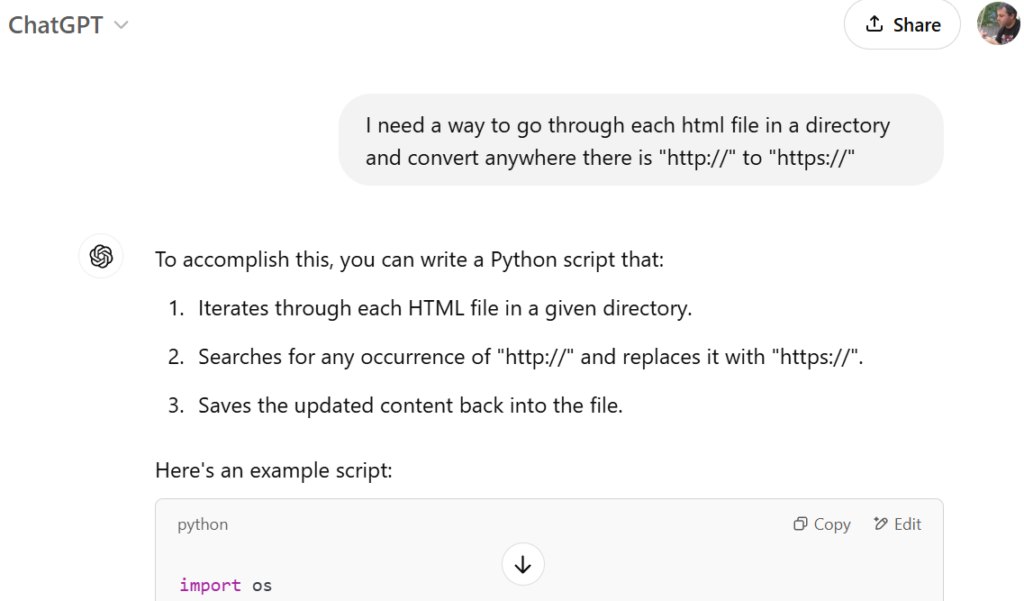
ChatGPT not only wrote the Python script but also guided me through installing Python and troubleshooting errors. In minutes, thousands of files were fixed—an impressive feat for someone with no coding background.
As I looked at the HTML to confirm code had changed, I saw other there were other issues. I had included email addresses, web stat trackers, and many other artifacts of the early web. ChatGPT was able to write more scripts that found and fixed all of these things. In the end, it wrote a general security scanner that looked for many common issues and surfaced them.
The process was very much like having a knowledgeable friend sitting over my shoulder, patiently walking me through the process.
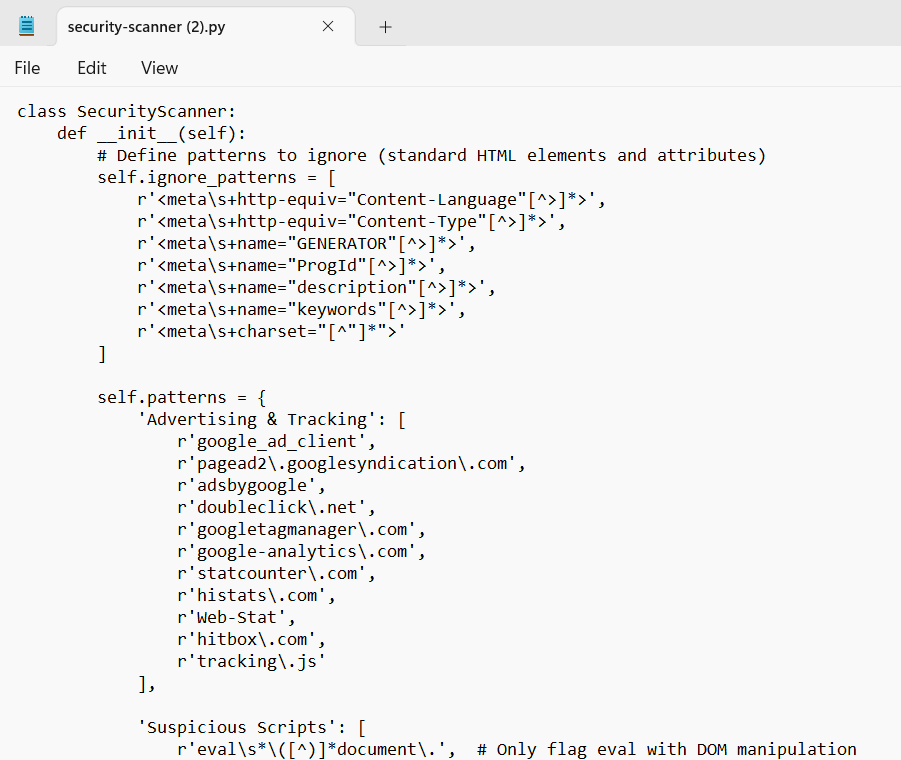
After this experience, I started trying several different AI systems to help with technical questions. The one that I seemed to like the most was claude.ai. Clear and to the point, claude almost always did the work I needed rather than telling me what work was needed.
Instead of telling me to generically “check the logs for errors”, claude said “go to the logs that are located in /var/log and upload it to me for review”. And sure enough it would parse the logs and give me specifics on what to try.
Most importantly, claude could help me with one of the most difficult issues in computing.
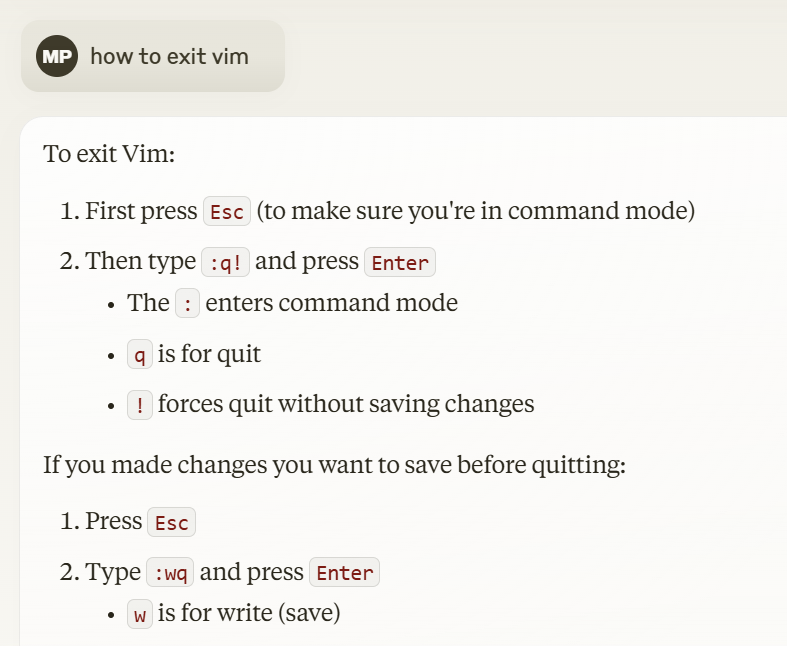
WordPress Plugin
I had recently returned my weblog to operation thanks to my friend Greg doing the needed necromancy.
Seeing the linkblogs on sites I liked, I wanted one for my site.
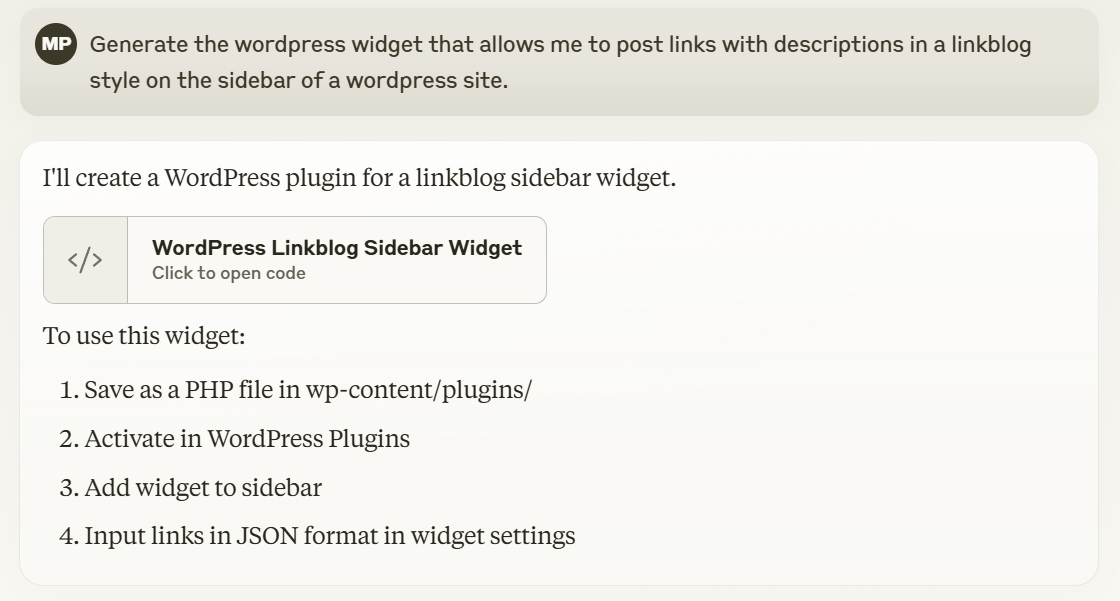
We (claude and me) quickly iterated on the functionality and design. I didn’t want to use JSON for input. I wanted a manual entry process in the WordPress admin page and didn’t want it to run using jQuery.
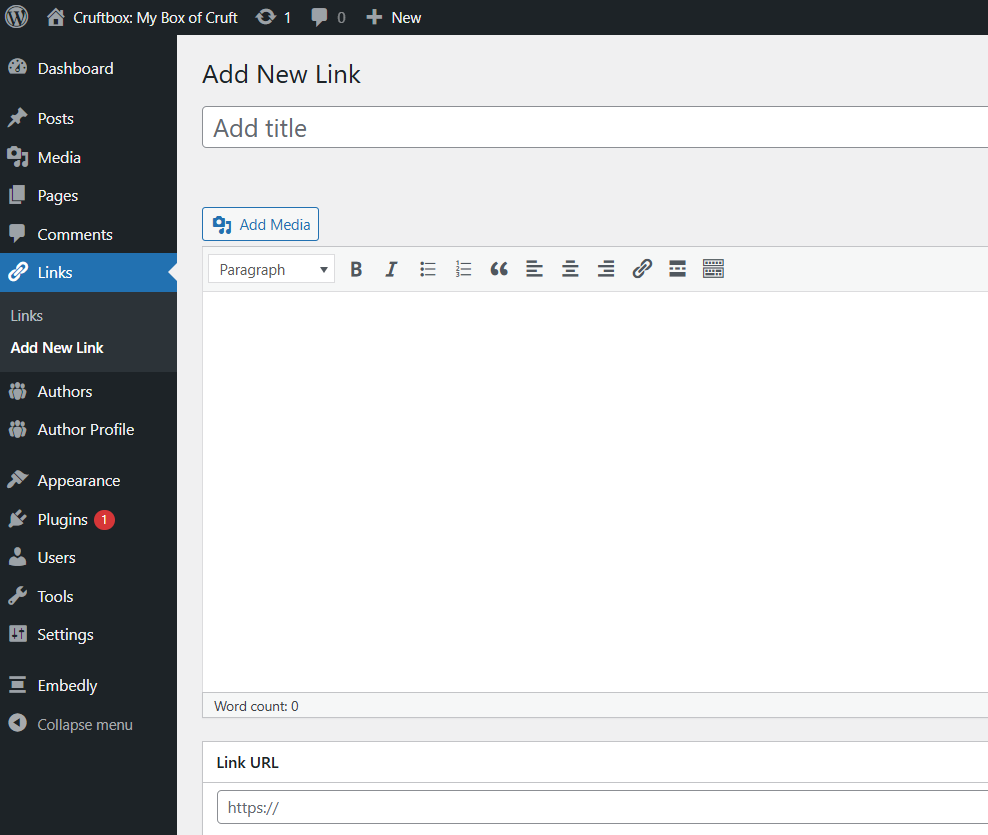
It took minutes to get it working. Again, my mind was blown.
Making changes was straightforward and simple.
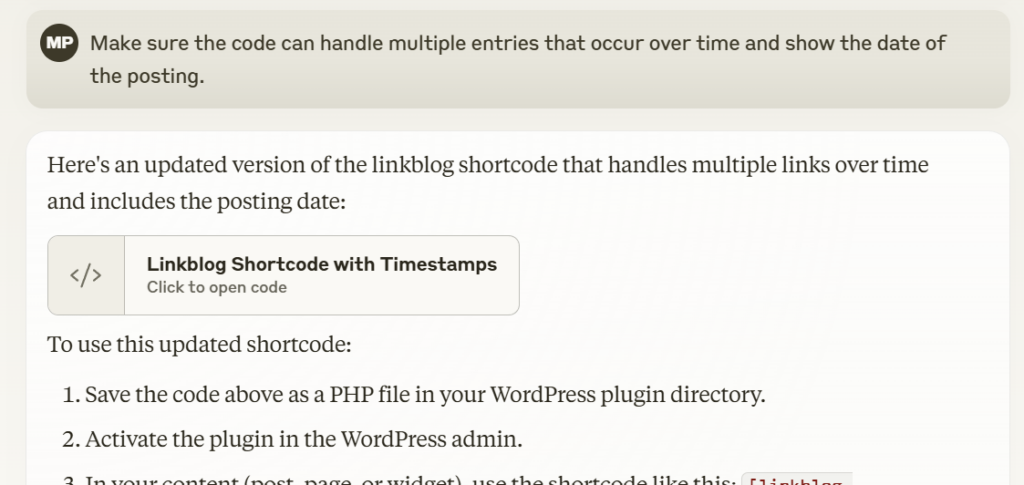
Within an hour, the linkblog was running and looked the way I wanted. Even if I was a WordPress shorttcode expert, I don’t think I could have done this all in an hour.
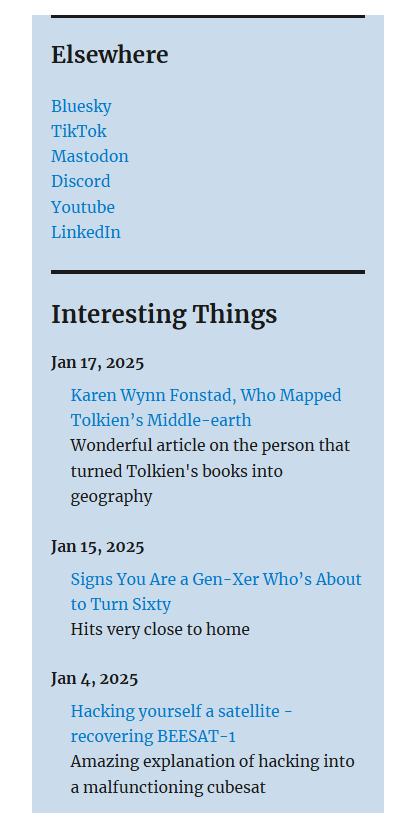
Best of all, I can keep modifying the code as needed without having to call in favors from friends.
Speech Interface
After watching a few Youtube videos of people speaking to an AI and hearing a response like a conversation, I was intrigued. Could I build something like that?
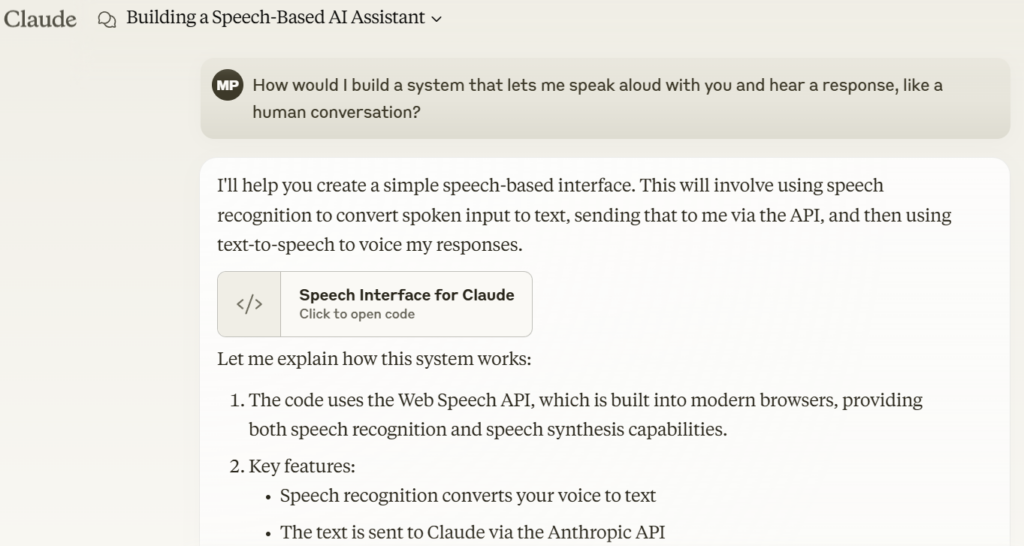
The HTML code for the needed Javascript popped up and we were off to the races. Claude walked me through setting up an API key, getting tokens, and working through errors.
The process quickly got complicated as I needed to set up a kind of reverse proxy for the API calls to claude that meant changing the settings of the Apache web server and installing a node.js server. I was walked through this process and the testing of it easily.
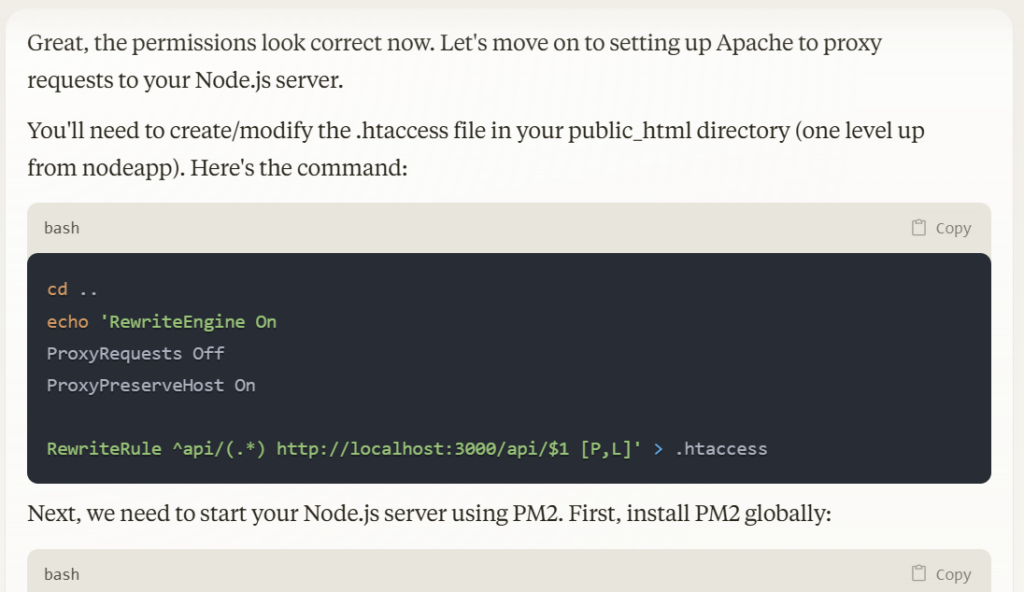
At each point, claude was positive and explained what was needed to be done. It never sighed, rolled it’s eyes, or got exasperated at me.
After about and hour, it was running an I was able to ask important questions.
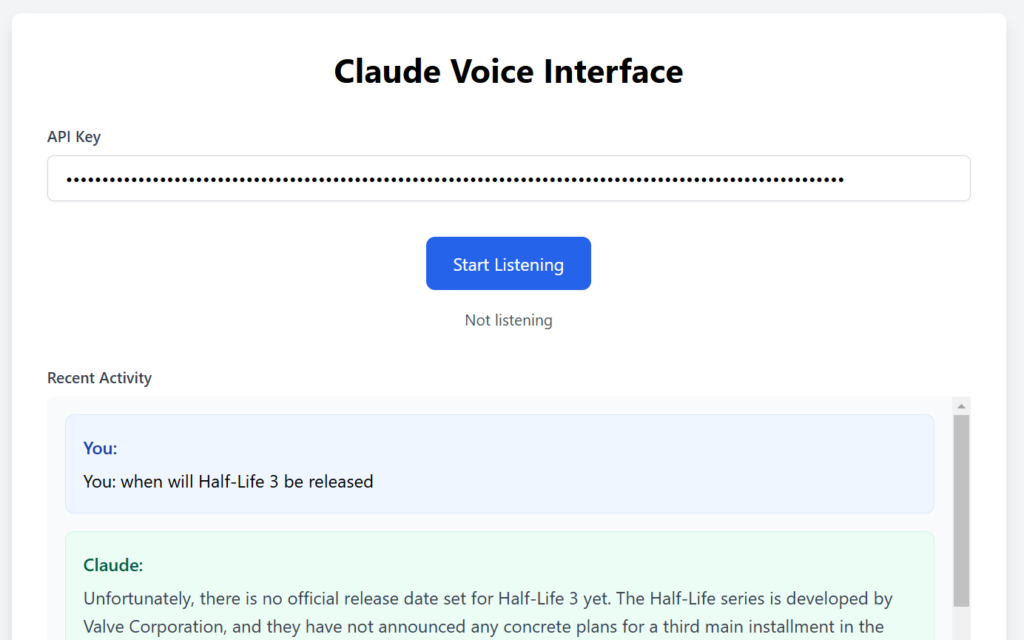
Improvements were easy, making a better UI design and even creating a button to stop the audio when it got long winded.
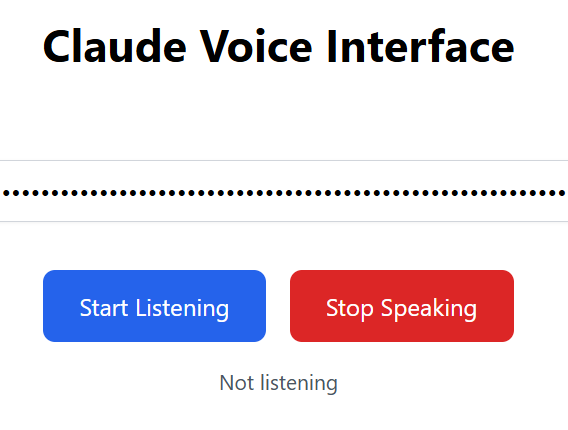
For some this may not be impressive, but to me it was mind blowing. A range of possibilities opened up in my mind. No longer stuck with googling for someone else’s work on the web that might fit my needs, I am actually able to build what I dream up.
I’ve played with a few different things to scratch my own itches and I continue to see what many others see in the use of AI in software development.
What does it all mean?
Fuck if I know.
I just looked a small slice of what AI tools might be capable of in coding. In that area, it seems clear that use of AI tools by software developers will be a game changing addition that allows more to be done in a shorter amount of time. I don’t see it eliminating the need for humans, just as pneumatic nailguns didn’t eliminate the need for human carpenters. Just powerful tools to let humans get things done.
I don’t see AI diagnosing networking problems and be able to go room to room examining fiber jackfields or replacing QSFPs. Or AI being able to read a room of execs and their body language when presenting ideas. Or AI being able to stop people from having bad video conference etiquette.
But the AI tools are currently a huge boon to software development and troubleshooting. I know many people that want nothing to do with AI and have strong feelings about it’s use. I get that. But to reject it’s use in this area is like sticking with a typewriter instead of trying a word processor back in the 1980s. A quixotic quest to maintain the status quo when the world is moving forward quickly.